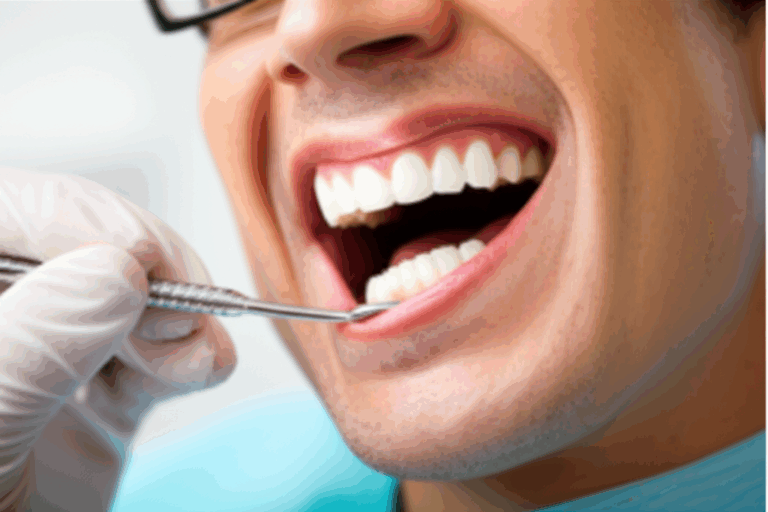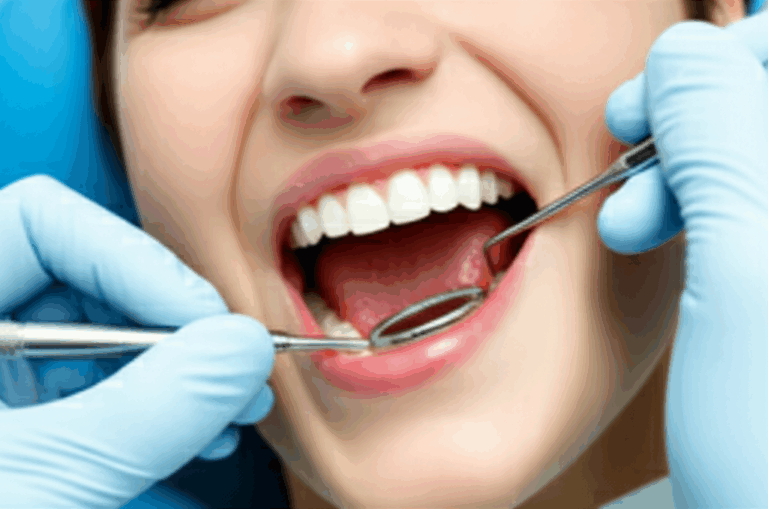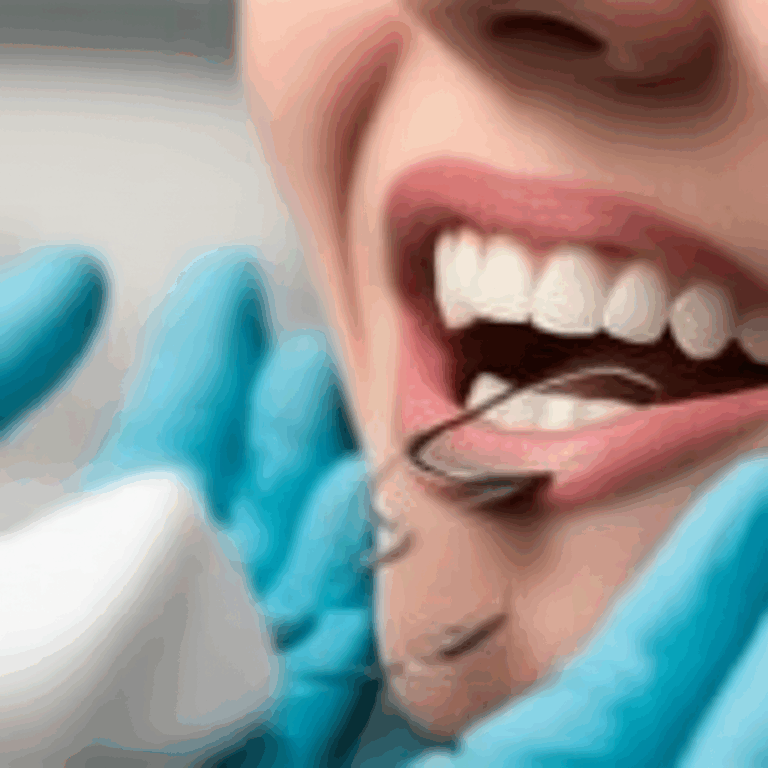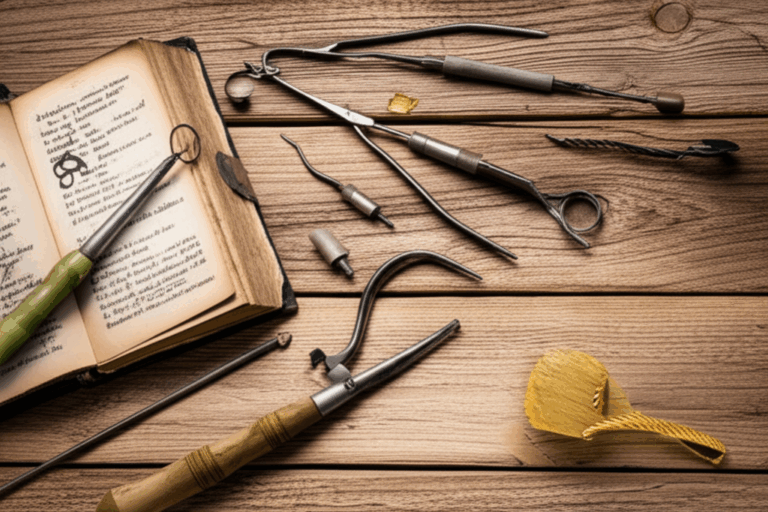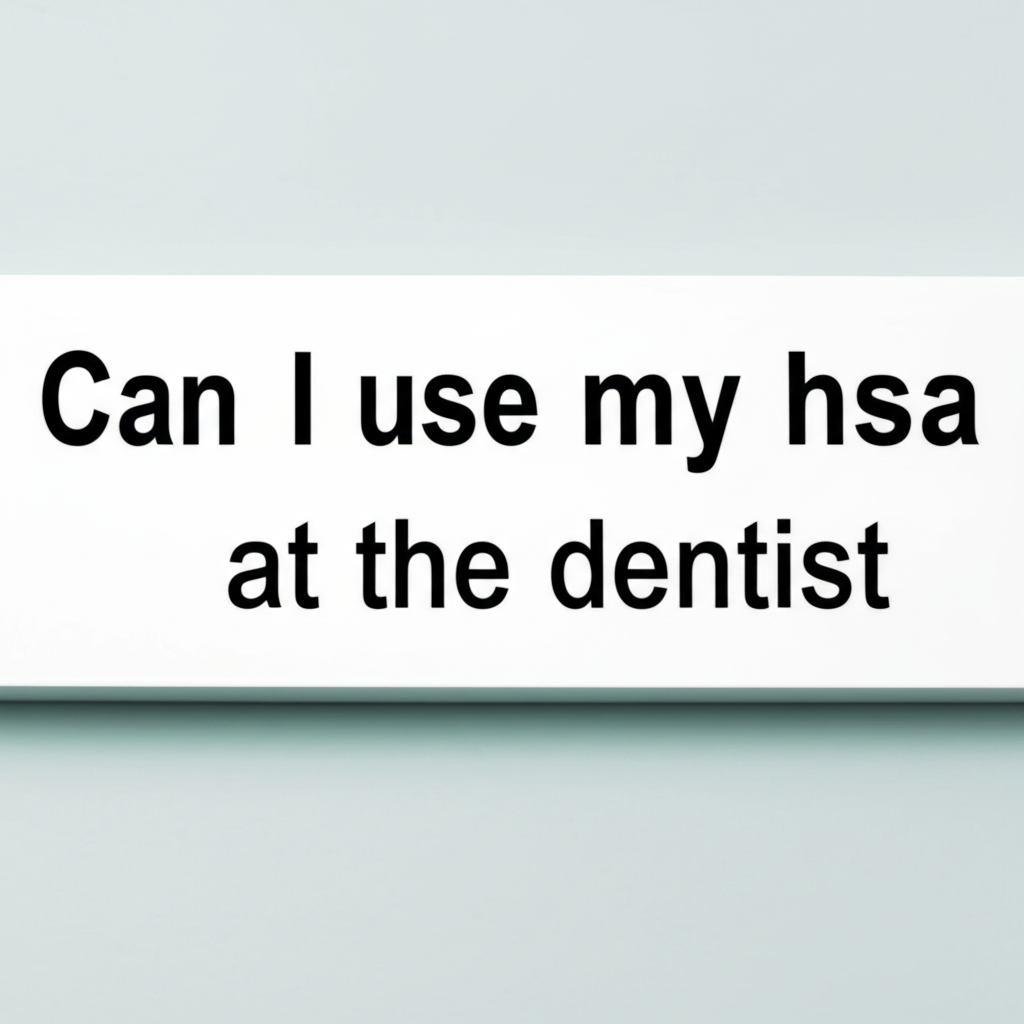
Can I Use My HSA at the Dentist? Your Complete Guide to Dental Expenses and Your Health Savings Account
That moment you look at your dental bill and wonder, Can I use my HSA at the dentist? You’re not alone. Figuring out healthcare accounts and money you pay yourself can be confusing—and going to the dentist is often expensive. You just want to get good care without spending too much.
Let’s make it clear: Yes, in a lot of cases, you can use your Health Savings Account (HSA) for dental costs. But there are some rules. Whether you’re getting a check-up, fixing a cavity with a filling, or thinking about braces, it’s good to know the details, save as much as you can, and feel sure about your choices.
In this easy-to-follow guide, we’ll answer your main questions and help you with every step—so you know what’s paid for, what isn’t, and how to use your HSA for a happier mouth. Let’s get started.
In This Article
- Can I Really Use My HSA at the Dentist?
- Understanding HSA-Eligible Dental Expenses: The IRS Rules You Need to Know
- Common Dental Procedures You Can (and Can’t) Pay With HSA Funds
- How to Use Your HSA at the Dentist—Step-by-Step
- HSA vs. FSA: How They Stack Up for Dental Care
- The Big Benefits of Using Your HSA for Dental Work
- Important Tips, Warnings, and Next Steps
- Your Takeaway: Smarter Dental Spending Means a Healthier Smile
Can I Really Use My HSA at the Dentist?
Let’s start with the big question—can you use your HSA at the dentist? Most of the time, yes, but you need to pay attention to the little details.
The Quick Answer
Most dental work that’s needed for your mouth to stay healthy—like cleanings, check-ups, fillings, crowns, dentures, and more—can be paid with your HSA. Cosmetic treatments (like teeth whitening) usually can’t. It all depends on if the procedure is a Qualified Medical Expense according to the IRS.
What’s an HSA, Anyway?
If you don’t know this word, don’t worry. An HSA is a Health Savings Account: a special account that saves you taxes—not just for doctor stuff, but also for most dental costs—if you have a high-deductible health plan (HDHP). Here’s why people like them:
- You put in money before taxes, so you pay less tax.
- The money grows without taxes.
- When you use it for approved expenses, including most dental care, you don’t pay tax on those either.
If you use your HSA the right way, dental care can cost you less in the end. Pretty good, right?
Understanding HSA-Eligible Dental Expenses: The IRS Rules You Need to Know
For HSA rules, the IRS is in charge. Think of them as the referees of health spending. Here’s what you should know.
Qualified Medical Expenses: What Does the IRS Allow?
According to IRS Publication 502 (“Medical and Dental Expenses”), you can use HSA money for dental treatments that are there to find, treat, fix, or avoid a dental disease or problem. To make it simple—if it helps keep your mouth healthy, it’s probably allowed.
Key Rule: Health, Not Looks
Dental costs must be for your health. If the work helps your health, stops pain, treats disease, or fixes damage, it probably counts. Purely cosmetic procedures (like teeth bleaching or just-for-looks veneers) are not allowed.
Examples of Eligible vs. Not Eligible
Eligible:
- Cleanings and check-ups
- Fillings and crowns
- Gum disease treatment
- Root canals
- Oral surgery
Not Eligible:
- Teeth whitening for looks
- Cosmetic veneers (unless to fix a problem)
- Toothbrushes, toothpaste, and floss (for daily hygiene)
Common Dental Procedures You Can (and Can’t) Pay With HSA Funds
Let’s keep it simple: When can you use your HSA, and when do you need to use something else? Here’s your handy guide:
Preventive Dental Care
These basics are always smart—and HSA money pays for the main things:
- Routine cleanings: Usually 1–2 a year, these keep your teeth clean and gums healthy.
- Exams and checkups: Catch problems early while they’re small.
- X-rays: Needed to see under the surface.
- Fluoride treatments and sealants: Often paid for, especially in kids.
Restorative and Diagnostic Treatments
If something hurts, is broken, or needs to be fixed—your HSA is there:
- Fillings: Fixing cavities is a health need.
- Crowns and bridges: Fix or replace damaged teeth.
- Root canals: When there’s infection, this saves the tooth.
- Extractions (including wisdom teeth): Removal is paid for when needed for health.
- Dentures and partials: If you’re missing teeth, these help you eat and talk.
- Dental implants: If they’re needed to chew or speak (not just for looks), you can use your HSA.
- Oral surgery: Any procedure you need to treat injury, disease, or problems.
Orthodontic Treatments (for Health Needs)
Braces or clear aligners like Invisalign cost a lot, so it’s good to know. Usually, HSA money pays for them only if your dentist or orthodontist says you really need them (like to fix a bite problem that may hurt your health later). Your child’s retainer after braces may also count.
Always get a note from your dentist if you want to be sure.
Periodontal Care
Healthy gums are about more than looks. HSA money pays for:
- Deep cleaning (scaling and root planing): To fight gum disease.
- Gum grafts: Fixing spots where gum tissue is missing.
- Treatment for periodontitis (bad gum disease).
Other Things You Can Pay For
- Prescription meds for dental stuff: Like antibiotics after surgery, doctor-ordered pain meds, etc.
- Mouthguards for grinding or TMJ: If your dentist tells you to get one for health reasons.
Procedures Not Usually HSA-Eligible
These often cause confusion. These are usually NOT paid for with HSA money:
- Teeth whitening: Even though nice, it’s for looks.
- Veneers (for looks only): If they are just to make teeth look better, it’s not allowed.
- Cosmetic bonding: Change the look, not the health.
- Normal toothbrushes, toothpaste, floss, mouthwash: These are “everyday health,” not treatments.
- Dental insurance payments: Usually not allowed unless there are special rules.
The Bottom Line
If you’re not sure if something counts, ask your dentist for a list and check with your HSA company. When in doubt, save all papers—just in case.
How to Use Your HSA at the Dentist—Step-by-Step
You know your treatment is HSA-eligible. Now, how do you actually pay?
Here’s how (you don’t need to be an accountant!):
1. Use Your HSA Debit Card (The Simple Way)
Most HSA companies give you a special debit card:
- Give your HSA card to the front desk at the dentist.
- The payment is made right then.
- That’s it—just remember to keep your receipt.
A lot of dentists also let you pay online with your HSA card at home.
2. Pay First, Then Get Paid Back
Maybe you forgot your HSA card or want points on your normal credit card. Here’s what you do:
- Pay with your own card.
- Keep your bill and the paper from your insurance or dentist.
- Go online to your HSA account and ask for a payback for the allowed expense.
- The HSA will pay you back, without tax.
Just make sure you save everything in case the IRS checks.
3. Keep Great Records
Here’s your golden rule: Save all your paperwork.
- Keep every detailed receipt, bill, and paper from insurance.
- Store your papers for at least 3–7 years, just in case.
4. Ask Your HSA Company
Some treatments are fuzzy. When you’re not sure, always:
- Call your HSA company.
- Ask if your treatment is on their list of allowed expenses.
- Some companies will email you an answer—great for safety.
HSA vs. FSA: How They Stack Up for Dental Care
You might be thinking, “What about my FSA (Flexible Spending Account)?”
Here’s a clear and easy chart:
| Feature | HSA | FSA |
|---|---|---|
| Who is eligible? | Only for people with High Deductible Plans | Anyone (if job offers it) |
| Do funds roll over? | Yes, money stays with you each year | “Use it or lose it” mostly |
| Can you invest funds? | Yes, your money can grow without taxes | No |
| Contribution limits? | Higher (2024: $4,150 single/$8,300 family) | Lower (about $3,050) |
| Ownership | You—money stays with you even if you quit your job | Belongs to the job |
| Dental coverage? | Yes—only allowed expenses | Yes—only allowed expenses |
For most normal dental care, both HSA and FSA work. If you want more choice and to save for big future dental needs, HSA is better.
The Big Benefits of Using Your HSA for Dental Work
Why use your HSA for dental? Here’s what makes it helpful:
1. Real Tax Savings
Every dollar you put in means you can pay less in taxes. For example, if you’re in the 24% tax group and save $2,000 in your HSA, you save $480 in federal taxes right away. If you use the money for dental care, there’s no tax.
2. Money That Stays With You
Unused HSA money is always yours. Different from FSA money, which you can lose at the end of the year, you don’t lose your HSA money. You can save for big things later—like implants, braces for your kids, or dental care after you retire.
3. You Can Grow Your Money
Most HSAs let you grow your money by investing. As your money gets bigger, you can use it for dental and health bills later. It’s like using a 401(k) for your health.
4. You Are in Charge
You choose how and when to use your HSA. Want to save for next year? That’s fine. Got a big dental bill? You can pay it from your HSA.
Important Tips, Warnings, and Next Steps
With great choices comes responsibility (and some paperwork). Before you use your HSA card for every dentist bill, remember these tips:
1. Check Your HDHP Status
Only people with a High Deductible Health Plan (HDHP) can put money in an HSA. Check if you can each year. If your health insurance changes, double-check before you put in any more money.
2. Don’t Go Over the Limit
The IRS sets limits for HSA money each year (for 2024, $4,150 for one person and $8,300 for families). Don’t go over or you could pay a fine.
3. Save Every Paper
The IRS can ask to see proof for every HSA payment. Save all your detailed bills, receipts, and insurance papers, especially for big jobs like crowns or implants.
If you need work like crowns or bridges, working with a trusted crown and bridge lab or dental ceramics lab can help your dental work last longer.
4. Ask Questions Before You Pay
If you’re not sure if it’s covered:
- Ask your dentist if the treatment is really needed for your health.
- Call your HSA help line or log in online to check.
- If you’re still worried, talk to a tax pro.
5. Use Other Ways Too
If your dental bill is more than your HSA, you can use your HSA and your own money together. Some jobs also offer Health Reimbursement Accounts (HRAs) to help even more.
6. Functional or Cosmetic? Be Careful!
If you need something like veneers after an accident (not just for looks), ask your dentist for a detailed note about why you need it. Save it just in case.
Your Takeaway: Smarter Dental Spending Means a Healthier Smile
Here are the big things to remember for your teeth and your money:
- HSAs can help make dental care cheaper. Allowed treatments include cleanings, fillings, crowns, gum care, and more—not teeth whitening only for looks.
- Keep all your papers. The IRS may ask, so save everything.
- Ask if you don’t know. Your dentist or HSA company can help.
- Take care of your teeth! Don’t wait on treatment just because of money worries. Using your HSA the right way lets you focus on what matters: healthy teeth and being happy to smile.
Next Step: Make a simple way—like a folder or an app—to keep all your bills and insurance papers. Look at your HSA balance and your dental plan together, and make sure you have regular dentist visits or fix problems early.
If you’re getting a lot of dental repairs or need false teeth or implants, working with a skilled china dental lab can make your new teeth strong and natural-looking. Need to know more about materials or lab work? Check out this practical guide for patient tips, or find a good dentist for help with your options.
Frequently Asked Questions: HSA and Dental Care
Q: Is Invisalign HSA-eligible?
A: Yes, but only if your dentist or orthodontist says you really need it (like for bite problems). Get a note and check with your HSA company.
Q: Can I use my HSA for dental implants?
A: Yes—as long as implants are needed for health (like replacing teeth to help you eat or talk). Implants just for looks are not paid for.
Q: What if I use my HSA for something not allowed?
A: You’ll pay normal taxes plus a 20% penalty—so be careful.
Q: Can I use my HSA for my kids’ dental work?
A: Yes! If your kids are on your tax return and the care is needed, you can use your HSA.
Q: Can retired people use their HSA for dental?
A: Yes—even if you’re done putting money into your HSA, you can use it for dental costs at any age. Many people save their HSA for this reason.
Your Action Plan: Empower Yourself for Better Dental Health and Savings
- Book your next regular check-up—small problems are cheaper and easier if you catch them early.
- Check your HSA amount so you’re ready for future needs.
- Get detailed written plans from your dentist. This helps with insurance and HSA paperwork later.
- Organize your records—paper or digital, whatever works.
- Ask for help if you need it. Most HSA companies and dental clinics are happy to answer “Does this count?”
Remember: Your HSA isn’t just money—it’s there to make your life healthier and less stressful. If you use it smart, you’re making a good investment in your smile and your future. So ask questions, plan ahead, and make your dollars work for you.
If you need specific dental repairs like crowns, bridges, implants, or retainers, working with dentists who use a trusted implant dental laboratory can give you better results.
Having a strong, healthy smile is always worth good planning—and your HSA is one of your best tools to get there.
Sources
- IRS Publication 502: Medical and Dental Expenses. irs.gov
- American Dental Association: ada.org
- Devenir 2022 Year-End HSA Research Report
- Employee Benefit Research Institute (EBRI): HSA Data Analysis 2023
This article is for general information only. For advice about your own health plan or dental needs, ask a healthcare provider or tax pro.

